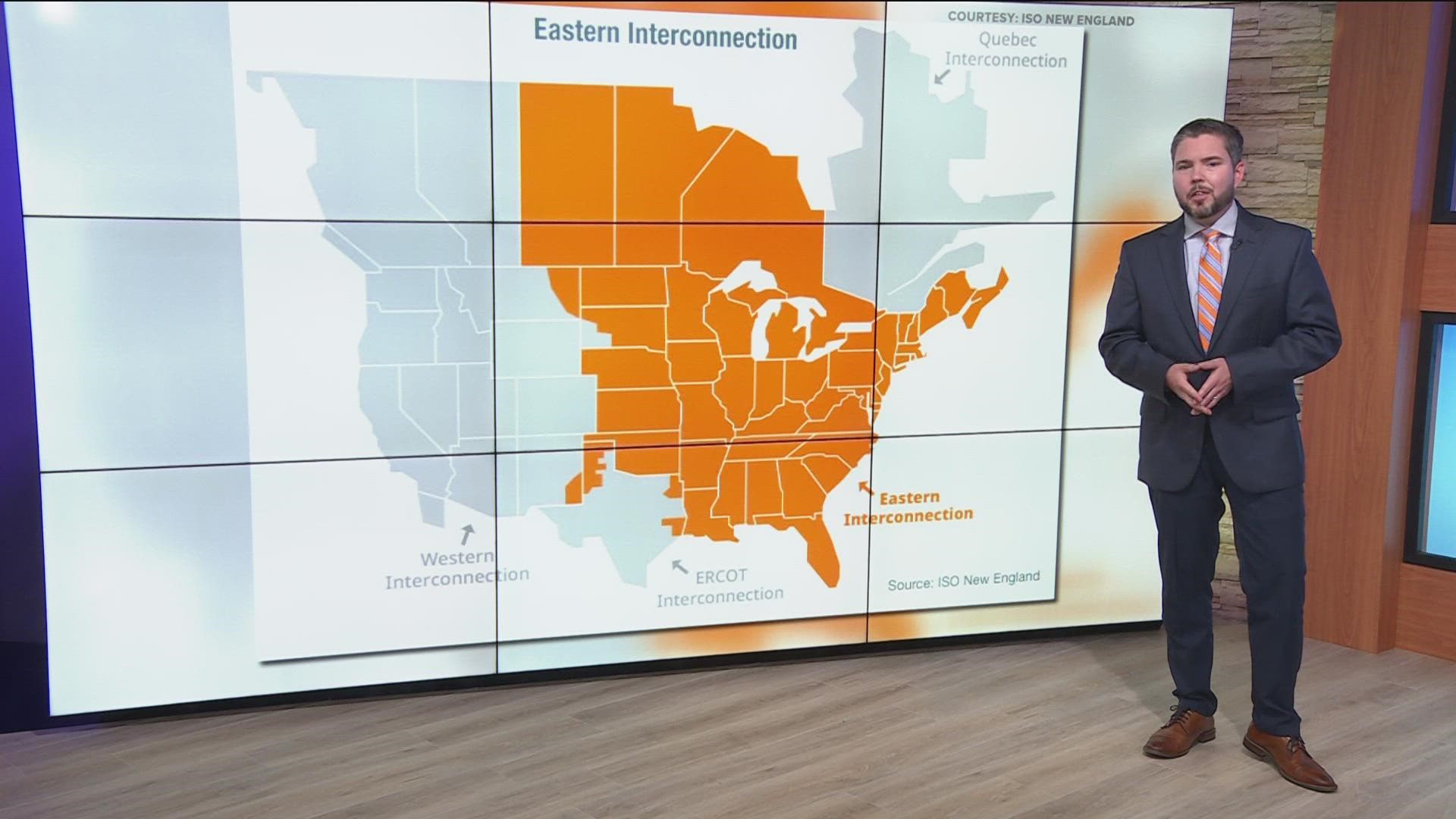MINNEAPOLIS — The heat has a huge impact on the capacity of the power grid as demand goes up.
So, is Minnesota prepared?
Here in Minnesota, we are part of the Eastern Interconnection, one of three sections of “the grid.”
The Eastern Interconnection includes nearly half of the United States.
Kevin Lee with the Department of Commerce’s energy resources division says utilities and operators can basically draw energy from this entire region during times of high usage.
“If you have a large event in one particular area that is producing a lot of demand, you may be able to compensate for that by bringing in energy from an area that is not experiencing that same event,” Lee explains.
Not only does this system provide more flexibility during peak times, but Lee says it’s also a way to keep market costs down through increased competition.
Lee says this sharing has helped countless times over the years.
We recently saw how helpful this system can be, when a devastating winter storm hit Texas last year causing massive outages.
Experts say one reason why these outages happened is because Texas has its own region of “the grid.”
"They have kind of their own system. They are not connected to the west or Eastern Interconnection,” Lee explains.
Which can make energy sharing difficult at times.
Besides that, here in Minnesota we also belong to the Midcontinent Independent System Operator, MISO for short.
It's basically like air traffic control for our 15 state region that directs energy where it's needed the most so no one runs out.
"That balances supply and demand every second of every day,” Lee says.
And then there's your utility company.
"We are very much well prepared,” Xcel Energy regional vice president John Marshall says.
At Xcel Energy, they spend the slower months fixing and upgrading equipment so it’s ready for summer.
They also have crews on standby in case any of their equipment overheats or storms damage any of their power lines.
"We want to ensure at the end of the day that each and every customer has power 24/7," Marshall says.
At Great River Energy they're doing the same things.
“Reliability is always on our minds,” Great River Energy vice president Priti Patel says.
Both utility companies also have demand response programs where customers can opt-in and help take some strain off the system.
"We plan in the long term, the midterm and in the moment to make sure we can supply safe and reliable energy,” Patel says.
Marshall also says that MISO will start sending out daily capacity advisories starting on Wednesday.
These daily alerts will go out to every utility in the region.
The alerts will give utilities valuable information regarding energy usage and energy supply so that utilities can decide whether they need to enact energy-saving policies or procedures to take pressure off the grid.
Watch more Breaking The News:
Watch all of the latest stories from Breaking The News in our YouTube playlist:

